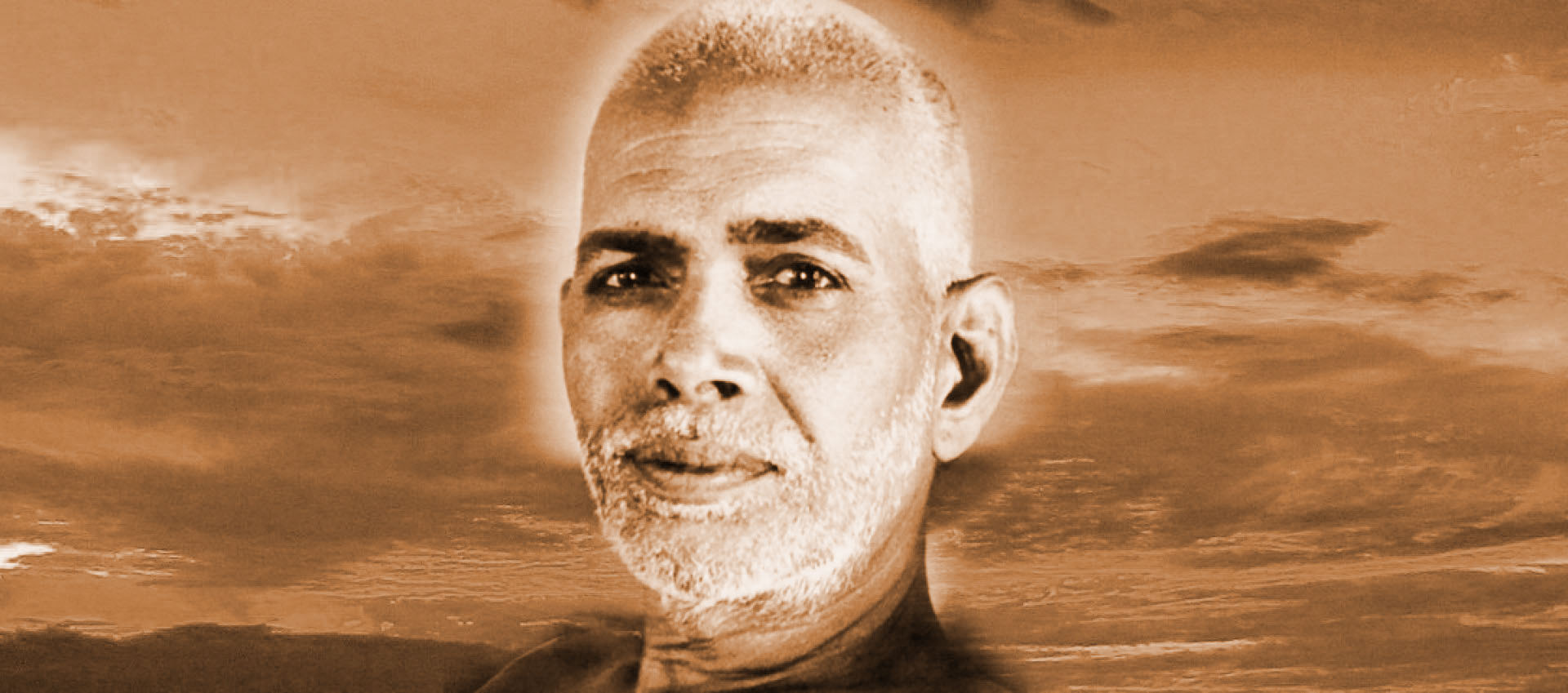
The Basic Theory – Basis for Practice
The Teachings of Bhagavan Sri Ramana Maharshi in His Own Words
Edited by Arthur Osborne (an ardent devotee of Ramana)
Chapter One
The Basic Theory
(Passages in green below are Arthur Osborne’s notes).
The Basic Theory – Basis for Practice
Readers of a philosophical turn of mind may find it strange to see the first chapter of this work entitled “The Basic Theory”. It may appear to them that the whole work should be devoted to theory. In fact, however, the Maharshi, like every spiritual master, was concerned rather with the practical work of training aspirants than with expounding theory. The theory had importance, but only as a basis for practice.
Devotee: Buddha is said to have ignored questions about God.
Bhagavan: Yes, and because of this he has been called an agnostic. In fact Buddha was concerned with guiding the seeker to realise Bliss here and now, rather than with academic discussions about God and so forth.
D.: Is the study of science, psychology, physiology, etc., helpful for attaining Yoga-liberation or for intuitive understanding of the unity of Reality?
B.: Very little. Some theoretical knowledge is needed for Yoga and may be found in books, but practical application is what is needed. Personal example and instruction are the most helpful aids. As for intuitive understanding, a person may laboriously convince himself of the truth to be grasped by intuition, of its function and nature, but the actual intuition is more like feeling and requires practical and personal contact. Mere book learning is not of any great use. After Realisation all intellectual loads are useless burdens and are to be thrown overboard.
Pre-occupation with theory, doctrine and philosophy can actually be harmful, in so far as it distracts a man from the really important work of spiritual effort, by offering an easier alternative which is merely mental, and which therefore cannot change his nature.
What use is the learning of those who do not seek to wipe out the letters of destiny (from their brow) by enquiring: ‘Whence is the birth of us who know the letters?’ They have sunk to the level of a gramophone. What else are they, O Arunachala?
It is those who are not learned that are saved rather than those whose ego has not yet subsided in spite of their learning. The unlearned are saved from the relentless grip of the devil of self-infatuation; they are saved from the malady of a myriad whirling thoughts and words; they are saved from running after wealth. It is from more than one evil that they are saved.
Similarly he had no use for theoretical discussions.
It is due to illusion born of ignorance that men fail to recognise that which is always and for everybody the inherent Reality dwelling in its natural heart-centre and to abide in it, and that instead they argue that it exists or does not exist, that it has form or has not form, or is non-dual or is dual.
Can anything appear apart from that which is eternal and perfect? This kind of dispute is endless. Do not engage in it. Instead turn your mind inward and put an end to all this. There is no finality in disputations.
Ultimately, even the scriptures are useless.
The scriptures serve to indicate the existence of the Higher Power or Self and to point the way to It. That is their essential purpose. Apart from that they are useless. However, they are voluminous, in order to be adapted to the level of development of every seeker. As a man rises in the scale he finds the stages already attained to be only stepping stones to higher stages, until finally the goal is reached. When that happens, the goal alone remains and everything else, including the scriptures, become useless.
Sometimes, it is true, he expounded philosophy in all its intricacies, but only as a concession to weakness, to those addicted to much thinking, as he put it in Self-Enquiry. I had thought of quoting such an explanation here, but found that it contained the passage:
The intricate maze of philosophy of the various schools is said to clarify matters and to reveal the Truth, but in fact it creates confusion where none need exist. To understand anything there must be the Self. The Self is obvious, so why not remain as the Self? What need to explain the non-self?
And of himself he adds:
I was indeed fortunate that I never took to it (i.e. philosophy). Had I taken to it I would probably be nowhere; but my inherent tendencies led me directly to inquire ‘Who am I?’ How fortunate!

